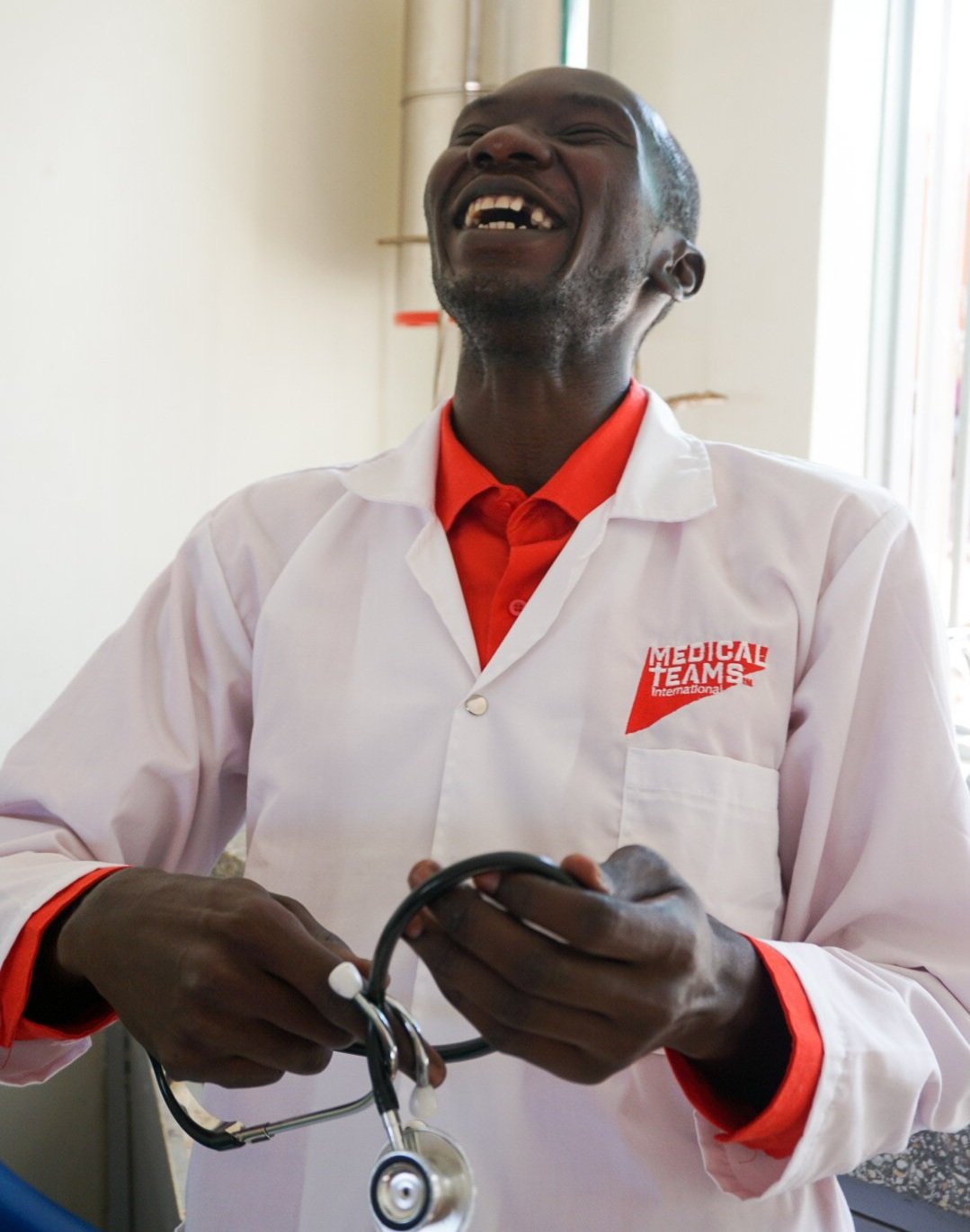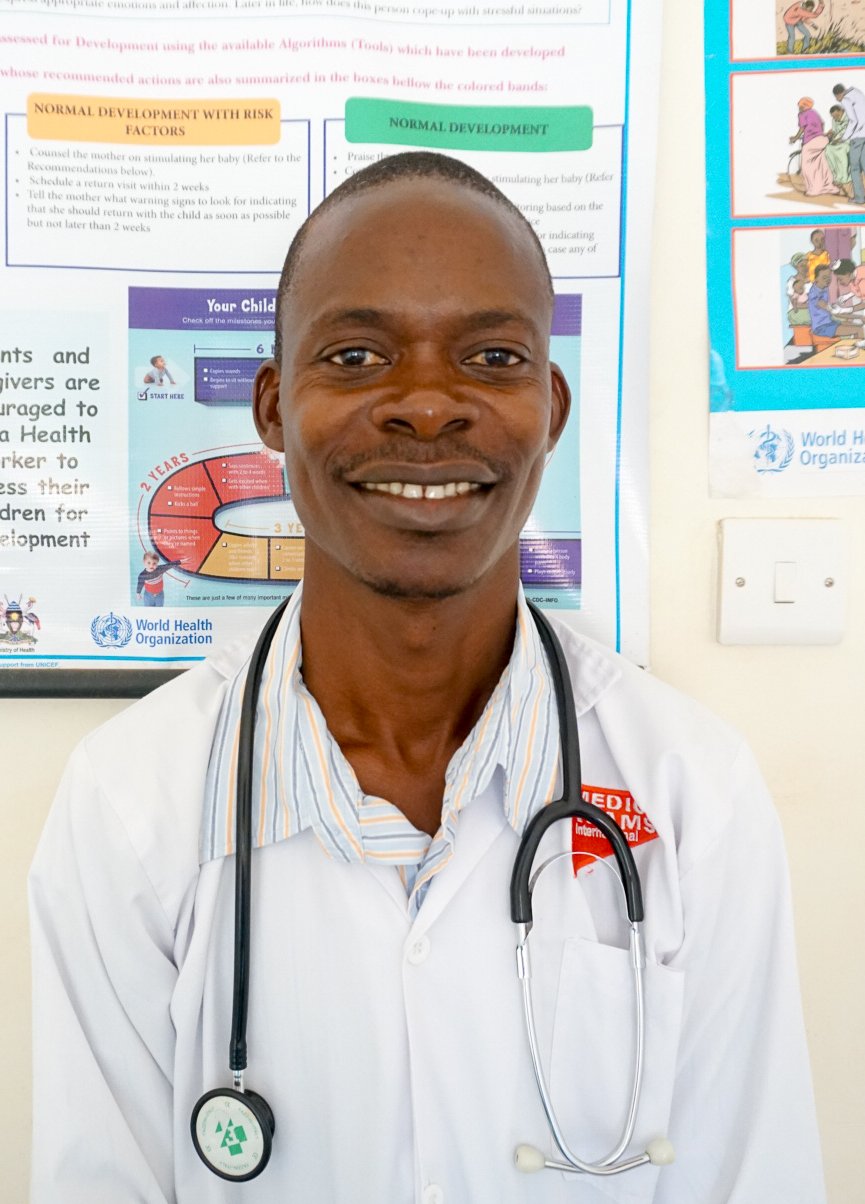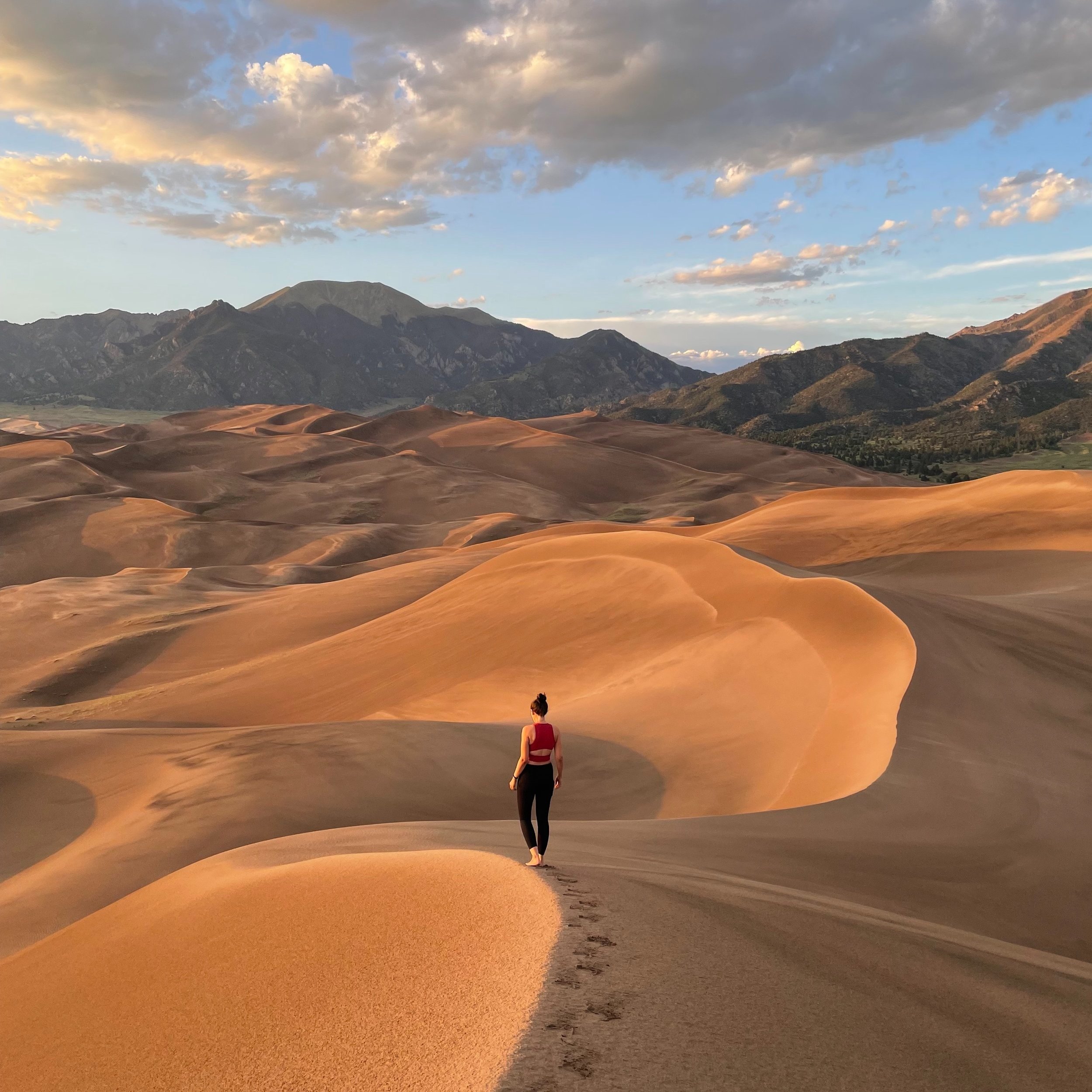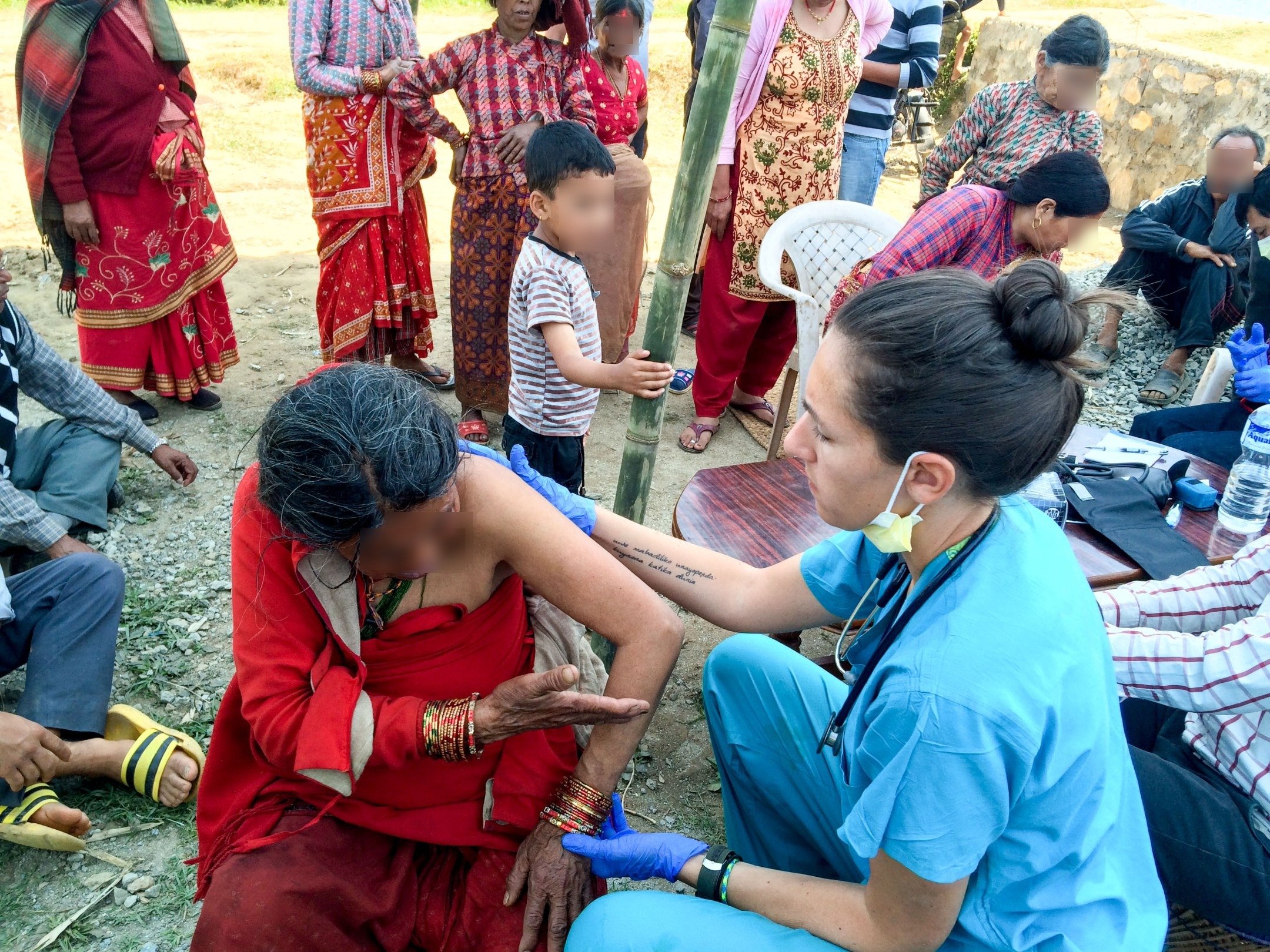Meet the Nurses of Uganda
The Pagirinya Health Center in Adjumani, Uganda where I’m currently volunteering is busy. The small center (more like a clinic by American standards) serves 30,000 people, most of them refugees fleeing violence and famine in South Sudan. The clinic’s resources are limited but the challenges it faces are not.
Patients waiting for treatment at the outpatient department of Pagirinya Health Center.
People often think I’m here to “save” Africa, that somehow one white American girl will make all the difference between success and failure on this continent. I get to write about my experiences and sound like a hero, while all the local people I work and play and live with remain one-dimensional supporting characters. But nothing could be further from the truth.
In reality it’s the nurses of Uganda, working here day in and day, out who carry the future of this country on their shoulders. And they’re amazing. These women and men are smart, tough, and committed to this cause despite laboring so far outside the spotlight that their efforts are rarely, if ever, noticed and celebrated.
So I’d like to take this opportunity to turn the spotlight onto them. I’ve been collecting pictures and stories of my favorite local staff as we worked together this week, and it has been so much fun getting to know them!
Let me introduce some of them to you:
At only 23 years old, Anette is already the charge nurse of the busy maternity ward, where 82 babies were born just last month. When I asked to take her picture, she immediately started organizing supplies on the delivery cart, because she wanted the photo to show her working – which is an accurate depiction because she’d been hard at work since she set foot on the unit! First thing in the morning she enlisted me to help her clean the ward from top to bottom, and then she re-evaluated each patient and quickly discharged anyone who was stable enough to go home, wanting to be sure there were enough free beds on the unit for emergencies.
Anette tells me she wanted to be a nurse because as a girl, she adored the little white hats that nurses wore as part of their uniform. Later, she says, “I just wanted to help people out.” At first she was terrified of blood and women in labor, “but I got used to it. Now I love it so much!”
Tifania works as a translator at the health center, and is a refugee herself. When she told me she had fled South Sudan, I was surprised to hear it – this warm, effusive woman who is quick to laugh just didn’t fit my mental image of the refugees I’d seen in the news. But Tifania can’t be kept down.
When soldiers attacked her village in South Sudan and began shooting people indiscriminately, Tifania “just picked up and ran, barehanded and barefooted.” Leading her two young children and pregnant with her third, she walked south towards Uganda for five straight days. Afraid of being discovered by soldiers, she stayed off the roads and slept in the bush. She and her children survived on food and water given to them by strangers along the way.
Tifania’s husband was away in the capitol when she fled, and when news of the violence reached him he thought his family had been killed. But Tifania borrowed a cell phone when she reached the Ugandan border to tell him they had survived, and the family was reunited in the refugee camp at Adjumani.
Because she speaks four languages – a huge asset in a place where 20 tribes from two countries have been thrown together, each with their own mother tongue – Tifania was able to get work as a translator. As I watch this confident woman easily navigate four languages to help us care for our patients throughout the day, it’s hard to imagine her as one of the helpless refugees we see on the news.
One year later after she fled, Tifania says she’ll never go back to South Sudan. Even her house was destroyed in the attack on her village, and she doesn’t have the heart to start from scratch again. Her family has begun rebuilding their lives here in the refugee settlement, but she says, “Even if we stay ten years in Uganda, we cannot replace what we lost.”
Stella is a nurse, though at the moment she’s working on a rotation in the pharmacy. With limited resources and essential medications constantly running out, I imagine hers must be a daunting position. But she moves around the compound slowly and gracefully, always ready to pause to ask passing volunteers a question.
Stella is hungry for knowledge. Once she determined each of the volunteers’ specialties, she started grilling us with questions to fill the gaps in her training. During some down time I happily agreed to illustrate for her the difference between placenta previa and placental abruption, and she has queried the other American clinicians about everything from pneumonia to nosebleeds.
It wasn’t a long leap from discussing medical issues in pregnancy to asking me if I have children, and Stella was horrified to learn that I’m childless by choice. We went ten rounds with her advising me that I absolutely MUST have kids (I’ve met my match in the stubbornness department) and I finally had to compromise by telling her I’d have just one and bring it to Uganda for her to keep. Hopefully by the next time I come to Uganda she’ll have one of her own to take the heat off me!
Tall and lanky, soft spoken and with an easy smile showing off the gap in his teeth, Kennedy is everywhere at once within the health center compound. He is the Clinical Officer and is in charge here (doctors are few and far between in Uganda, so Clinical Officers are often the most expert clinicians available – the equivalent of Physicians Assistants in America).
In a place where everything runs on “Africa time” (read: SLOW) and even serious medical conditions are not met with much urgency, Kennedy can be seen running from one unit to another throughout the day. If any other clinician has a question about a diagnosis or a treatment, they’ll ask for Kennedy’s opinion and he’ll materialize shortly to patiently and thoughtfully consult.
Despite being the highest ranking clinician here, I never see him throw his weight around. He works as hard, if not harder, than anyone, and I’d bet the place would fall apart without him.
This delightful man’s name is Isaac Newton. Really.
He is the newest clinical officer at Pagirinya, having just started here three months ago. Even so, he’s one of the clinicians I prefer to seek out when I need a second opinion. Despite his extremely busy job (where he often works weekends even though he’s only paid Monday through Friday), he always seems happy to take the time to see another patient. Whenever I see him he breaks into a wide, genuine grin that turns his eyes into thin slits. I keep telling him that Pagirinya is lucky to have him, so he should take care not to burn himself out!
And as for that name? He says his father gave it to him and “It has really inspired me. I really really love physics, even now!”
With my time here in Uganda already half over, I’ll be heading out to serve at a different health center next week.I’ll be sad to leave these wonderful personalities behind, but I’m so lucky I got to work alongside them for the last couple of weeks. Whenever I see Africa depicted on the news as a place full of violence, disease, and disorder, I think of the wonderful people I’ve met all over the continent – like the staff at Pagirinya – and I know that they represent the real Africa.
You Might Also Like:
This post may contain affiliate links. If you make a purchase through our links, we get a small commission at no cost to you. This helps with the cost of keeping this site running – so thank you for clicking through! Don’t worry, we won’t recommend anything we don’t fully believe in.

















